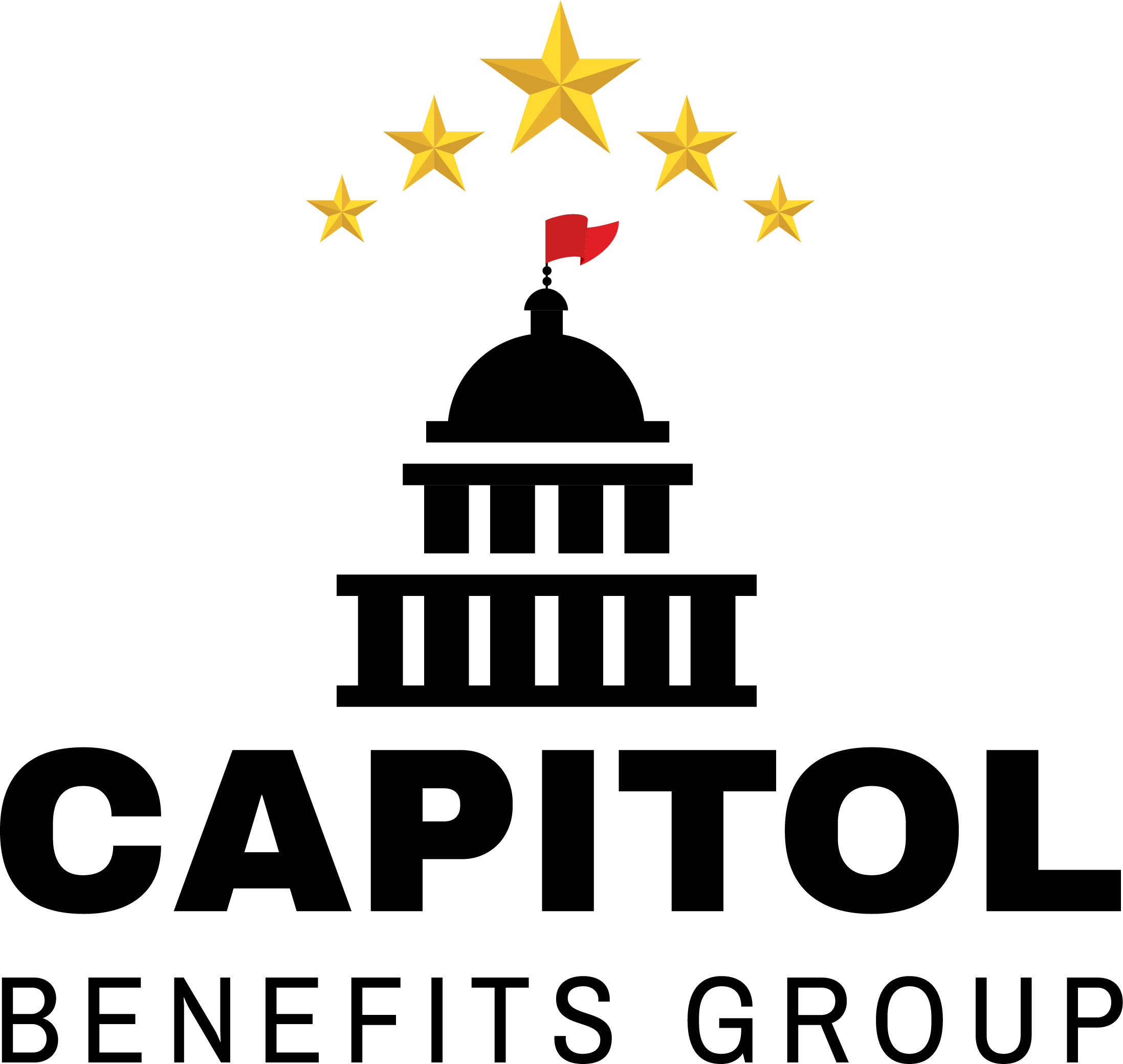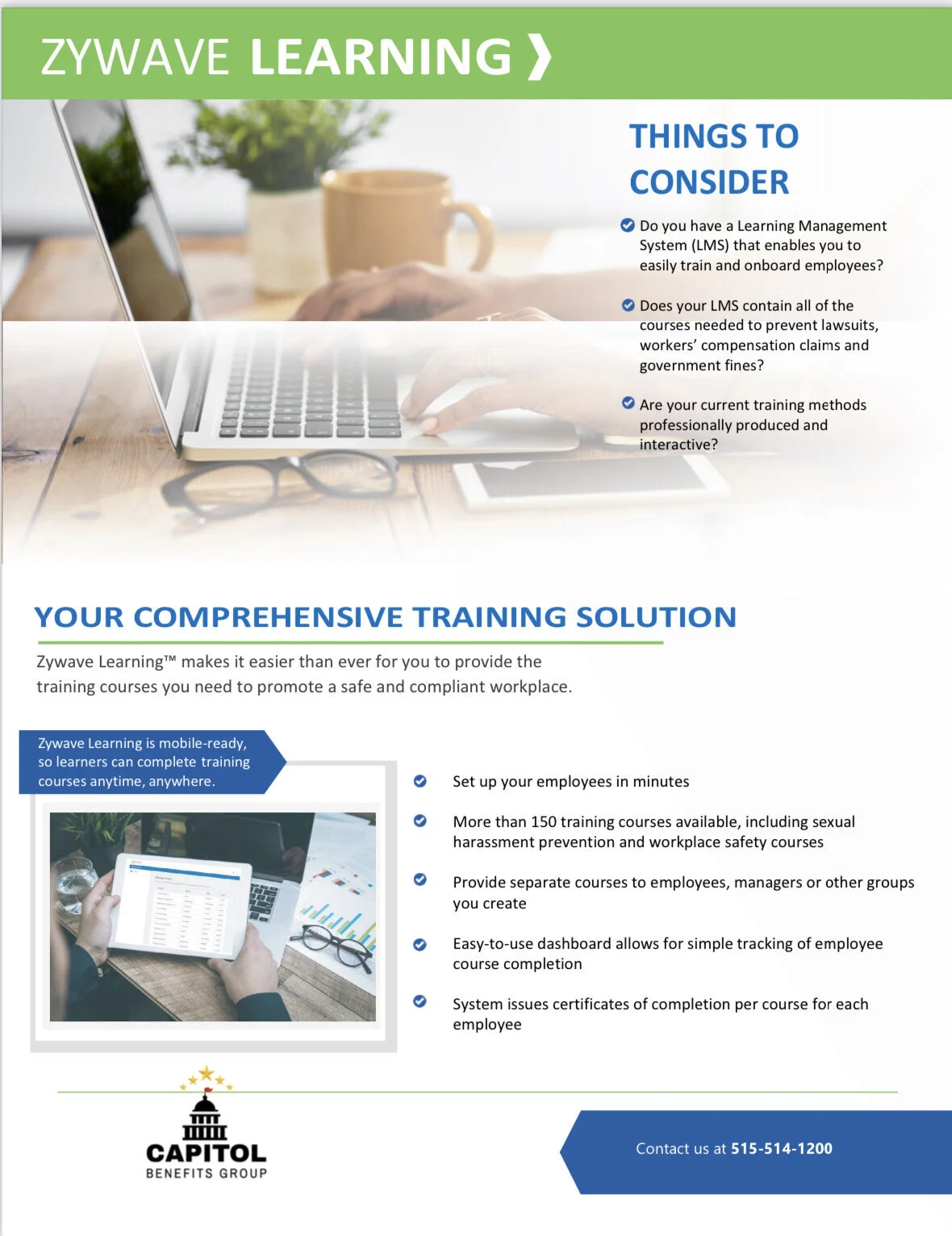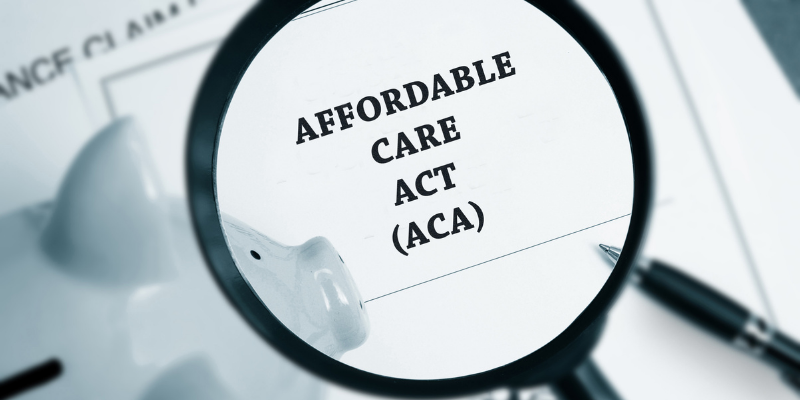Capitol Benefits Group News & Updates
Resources: Zywave Learning
Zywave Learning makes it easier than ever for you to provide the training courses you need to promote a safe and compliant workplace.
Key benefits:
Set up your employees in minutes
More than 150 training courses available, including sexual harassment prevention and workplace safety courses
Provide separate courses to employees, managers or other groups you create
Easy-to-use dashboard allows for simple tracking of employee course completion
System issues certificates of completion per course for each employee
EEOC Extends EEO-1 Deadline for 2019 and 2020
Data Submissions
The New Deadline Gives Employers Another Month to Complete
(Until August 23)
Employers now have some extra time to submit equal employment opportunity EEO-1 workforce data from 2019 and 2020, the U.S. Equal Employment Opportunity Commission (EEOC) announced on June 28, 2021. These reports were previously due by July 19, 2021. Employers now have until Aug. 23, 2021, to complete their submissions.
The EEOC's collection of this data, the portal for which opened on April 26, 2021, had been delayed numerous other times due to the coronavirus pandemic. Under Title VII of the Civil Rights Act, the EEO-1 Report is usually due by March 31 every year.
The content herein is provided for general information purposes only and does not constitute, legal, tax, or other advice or opinions on any matters. This information has been taken from sources which we believe to be reliable, but there is no guarantee as to its accuracy.
President Biden Issues Executive Order to
Promote Competition in the American Economy
On July 9, 2021, President Joe Biden issued an executive order to promote competition in the American economy. As stated by the accompanying fact sheet, the order's objectives include reducing the trend of corporate consolidation, increasing competition and delivering concrete benefits to America's consumers, workers, farmers and small businesses.
Reducing Barriers to Competition
The order directs over a dozen federal agencies, including the Federal Trade Commission (FTC), to look into unfair competition practices, including:
* Restrictive covenant and non-compete agreements;
* Prescription drug prices;
* Internet billing and termination practices;
* Airline refunds and cost comparison practices;
* Facilitating the mobility of banking transaction data; and
* Increasing opportunities for small businesses by directing all federal agencies to promote greater competition through their procurement and spending decisions.
Key initiatives of this order include:
* Encouraging the FTC to ban or limit non-compete agreements;
* Encouraging the FTC to ban unnecessary occupational licensing restrictions that impede economic mobility;
* Encouraging agencies to prevent employers from collaborating to suppress wages or reduce benefits by sharing wage and benefit information with one another; and
* Establishing a White House Competition Council, led by the Director of the National Economic Council.
Next Steps
The order does not invalidate any of the practices and procedures mentioned above. However, industry experts recommend that employers take time now to review, at the very minimum, their use of restrictive covenant agreements and evaluate how this order may impact their practices.
U.S. Supreme Court Rejected Challenge to ACA
On June 17, 2021, the U.S. Supreme Court rejected a lawsuit challenging the constitutionality of the Affordable Care Act's (ACA) individual mandate in a 7-2 ruling.
This lawsuit was filed in 2018 by 18 states as a result of the 2017 tax reform law that eliminates the individual mandate penalty. In 2012, the U.S. Supreme Court upheld the ACA on the basis that the individual mandate is a valid tax. With the penalty's elimination, the appeals court, in this case, determined that the individual mandate is no longer valid under the U.S. Constitution.
The Supreme Court determined that the plaintiffs, in this case, did not have a legal right to sue. As a result, the ACA as it exists today will remain in place. The Court did not make any determinations on any other issue in the case, including the validity of the individual mandate or whether the rest of the ACA can be severed from the individual mandate provision. However, this case is now concluded.
PCORI Fees Due Aug. 2, 2021
The Fee is $2.54 per Covered Life for Plan Years Ending in 2020
The Affordable Care Act (ACA) requires health insurance issuers and self-insured plan sponsors to pay Patient-Centered Outcomes Research Institute fees (PCORI fees). Issuers and plan sponsors are generally required to pay the PCORI fees annually by July 31 of each year. However, the PCORI fee payment for plan years ending in 2020 is due Aug. 2, 2021, since July 31, 2021, is a Saturday.
The fees are reported and paid annually using IRS Form 720 (Quarterly Federal Excise Tax Return). In general, the PCORI fees are assessed, collected and enforced like taxes. The PCORI fee applies separately to "specified health insurance policies" and "applicable self-insured health plans," and is based on the average number of lives covered under the plan or policy.
Using Part II, Number 133 of Form 720, issuers and plan sponsors are required to report the average number of lives covered under the plan separately for specified health insurance policies and applicable self-insured health plans. That number is then multiplied by the applicable rate for that tax year ($2.54 for plan years ending on or after Oct. 1, 2019, and before Oct. 1, 2020). The fees for specified health insurance policies and applicable self-insured health plans are then combined to equal the total tax owed.
The content herein is provided for general information purposes only, and does not constitute, legal, tax, or other advice or opinions on any matters. This information has been taken from sources which we believe to be reliable, but there is no guarantee as to its accuracy.






